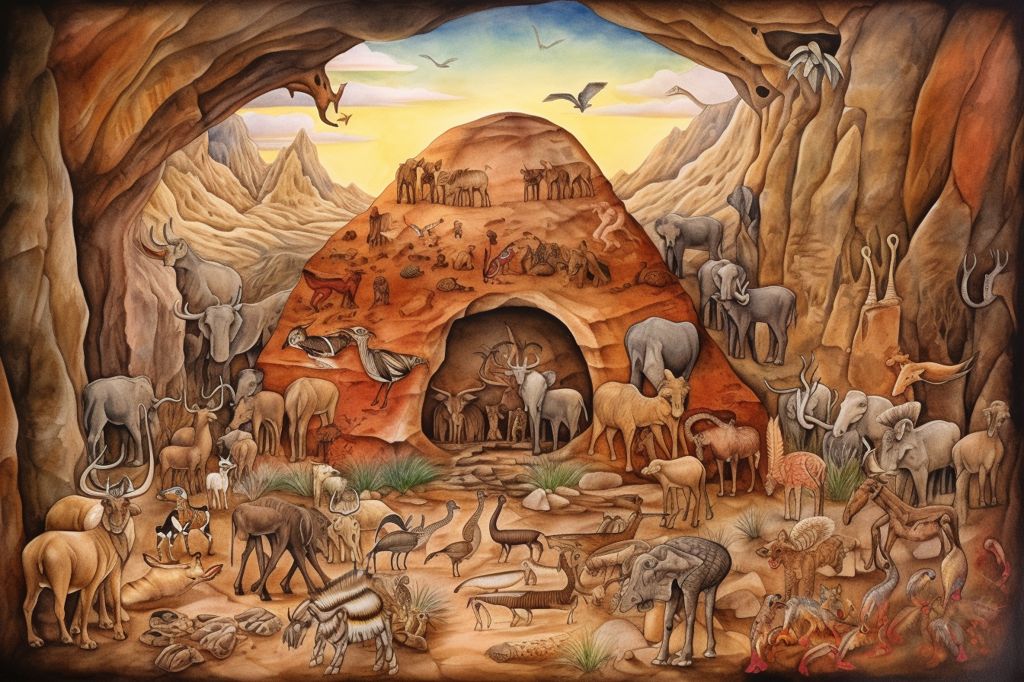The Mapungubwe Kingdom, established around 800 years ago, was southern Africa’s earliest state-level society and urban city. Extensive research into this ancient society has revealed many details about its rise to prominence and involvement in global trade networks. However, despite the kingdom’s importance, one critical aspect of its development has largely been overlooked: the significant contributions made by hunter-gatherer societies that inhabited the region long before the arrival of farmers.
Overcoming Historical Oversights
Recently, a team of researchers from the University of Mpumalanga has been working at the Mapungubwe National Park. Their focus is on uncovering the contributions made by the hunter-gatherers to the rise of the Mapungubwe Kingdom. In particular, they have been studying the Little Muck Shelter, a large rock shelter containing numerous paintings on its walls. The images depict various animals, people, and spirits and were produced by hunter-gatherers as part of their spiritual and cultural practices.
The findings of the research conducted by the University of Mpumalanga team at Little Muck Shelter highlight the crucial role that hunter-gatherer societies played in developing the Mapungubwe Kingdom. The study shows that these societies were present in the area during the rise of Mapungubwe and actively participated in the local economy. Hunter-gatherers were often overlooked in historical accounts, but their role in local society was essential and deserving recognition.
A Forgotten but Vital Role in Society
The team’s research demonstrates that hunter-gatherer societies were in the shelter when farmers arrived in the region. The consistency in cultural material over a long time indicates that hunter-gatherers lived in the area throughout the rise of Mapungubwe. The researchers also found that when farmer groups arrived in the region, hunter-gatherers shifted their craft activities, mainly making bone implements until the end of the Mapungubwe Kingdom. This suggests that interactions with farmers stimulated change in their crafted wares.
Furthermore, as trade wealth in the form of ceramics, glass beads, and metal emerged in the region, hunter-gatherers responded by emphasizing their own skill sets in crafting these goods. This indicates that hunter-gatherers were actively involved in developing the region’s economy and had access to wealth at the time.
A Rich Cultural History
The paintings at Little Muck Shelter provide a glimpse into these forgotten societies’ spiritual and cultural practices. They reveal a complex and sophisticated world view, with depictions of animals, people, and spirits that were likely integral to their beliefs.
The research conducted by the University of Mpumalanga team at Little Muck Shelter is helping to fill in the gaps in our understanding of the region’s past. In addition, it is a reminder that historical accounts often overlook the contributions of marginalized groups, such as hunter-gatherer societies.
Appreciating the Role of Hunter-Gatherers
The contributions of hunter-gatherer societies to the rise of the Mapungubwe Kingdom are undeniable. However, we need to include their role in historical accounts to have an accurate understanding of the region’s past. The team’s research is helping to shed new light on this forgotten aspect of southern African history.
As we appreciate the rich cultural history of southern Africa, we must also remember the contributions of all groups, including those that were historically overlooked. The research findings conducted by the University of Mpumalanga team at Little Muck Shelter are a vital reminder.








